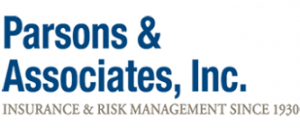M – Glossary of Terms
ALPHABETICAL LISTING
A | B | C | D | E | F | G | H | I | J | K | L | M | N | O | P | Q | R | S | T | U | V | W | X | Y | Z
Mail Order Insurer: An insurance company that sells insurance policies through the mail, or other mass media, eliminating a need for agents.
Maintenance Bond: A bond that guarantees against defects in workmanship or materials for a stated period of time after the acceptance of the completed work.
Major Medical Insurance: Health insurance that provides benefits for major illness and injury. Usually characterized by a large benefit maximum ranging up to $5,000,000.00, or no limit. This insurance, above an initial deductible, reimburses the major part of charges for hospital, doctor, private nurses, medical appliances, prescribed out-of-hospital treatment, drugs, and medicines.
Malpractice: Improper care, conduct, or treatment by a physician, hospital, or other provider of health care.
Malpractice Insurance: Coverage for a professional practitioner, such as a doctor or a lawyer, against liability claims resulting from alleged malpractice while professional services were performed.
Managed Care: A health care system that delivers appropriate health care services to covered individuals by arrangements with selected providers.
Manual Rate: The premium rate developed for a group insurance coverage from standard rate tables normally referred to as its rate manual.
Marine Insurance: A form of insurance primarily concerned with means of transportation and communication, and with goods in transit.
Marital Deduction: A reduction of an estate for estate tax purposes, which is available if the decedent is survived by his or her spouse.
Master Policy: Two definitions: (1) An insurance policy that is issued to an employer or trustee, establishing a group insurance plan for designated members of an eligible group, or (2) A property insurance policy issued to an insured who may issue certificates of insurance to cover properly of others.
McCarran-Ferguson Act: The Federal Law passed in 1945 stating that continued regulation of the insurance industry by the states is in the public interest and that federal antitrust laws apply to insurance only to the extent that the industry is not regulated by state law.
Medicaid: State programs of public assistance to persons whose income and resources are insufficient to pay for health care.
Medical Examination: An examination given by a qualified physician to determine to the insurability of an applicant.
Medical Expense Insurance: A type of health insurance that provides benefits for expenses incurred for medical care, such as: expenses of physicians, hospital, nursing, and related health services, and supplies.
Medical Payments Insurance: A coverage, available in various automobile and liability insurance policies, in which the insurer agrees to reimburse the insured and others, without regard for liability.
Medicare: The United States federal government program of Hospital Insurance (Part A) and Supplementary Medical Insurance (Part B) protection provided under the Social Security Act.
Miscellaneous Expenses: Any expenses in connection with hospital insurance, hospital charges other than room and board, such as X-rays, drugs, laboratory fees, etc.
Misrepresentation: A false, incorrect, or incomplete statement of a material fact, made in the application for a policy.
Mode of Premium Payment: The frequency which premiums are paid monthly, quarterly, semiannually, or annually.
Moral Hazard: A hazard arising from any nonphysical, personal characteristic of a risk that increases the possibility of loss.
Morbidity: Relative incidence of a disease.
Morbidity Tables: Actuarial statistics showing the frequency and duration of a sickness.
Mortality Table: A table showing how many members of a group, starting at a certain age, will be alive at each succeeding age.
Multi-Peril Policy: A package policy which provides protection against a number of separate perils in one contract.
Mutual Insurance Company:
An insurance company in which the ownership and control is vested in the policyholders and a portion of surplus earnings returns to the policyholders.
ALPHABETICAL LISTING
A | B | C | D | E | F | G | H | I | J | K | L | M | N | O | P | Q | R | S | T | U | V | W | X | Y | Z






